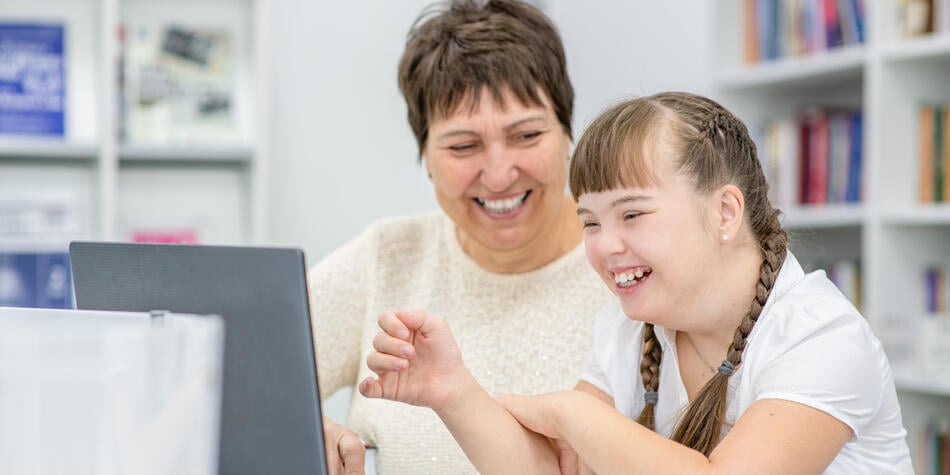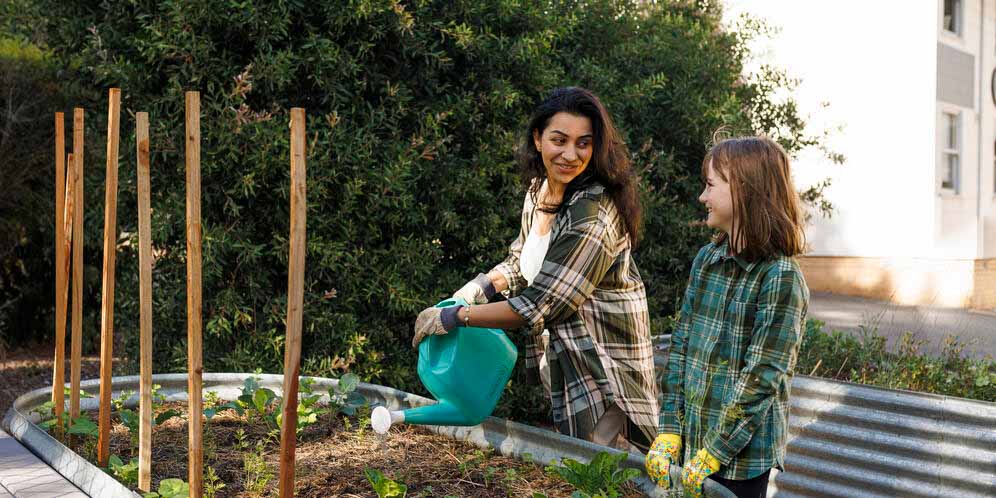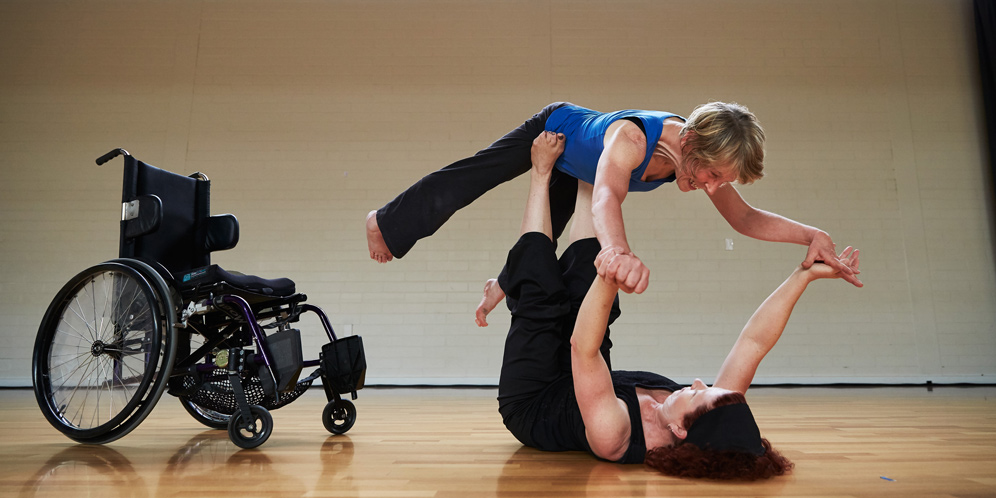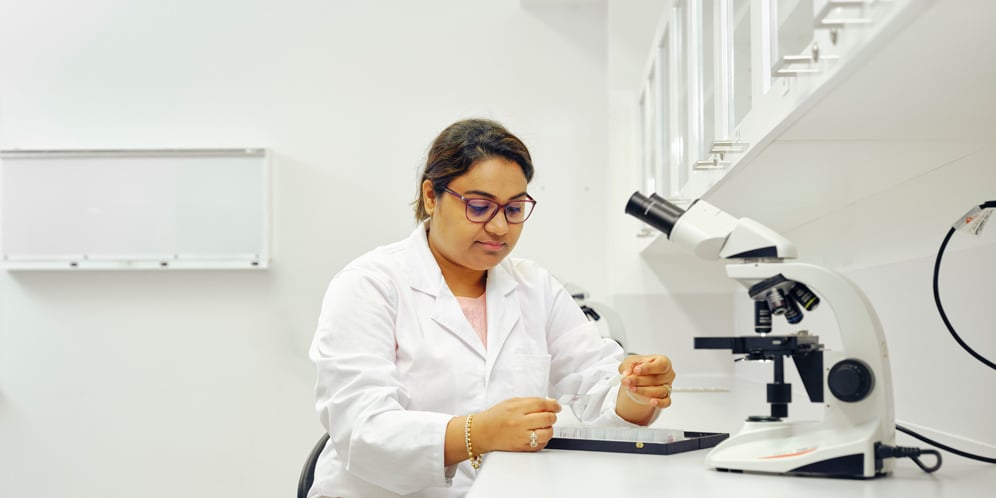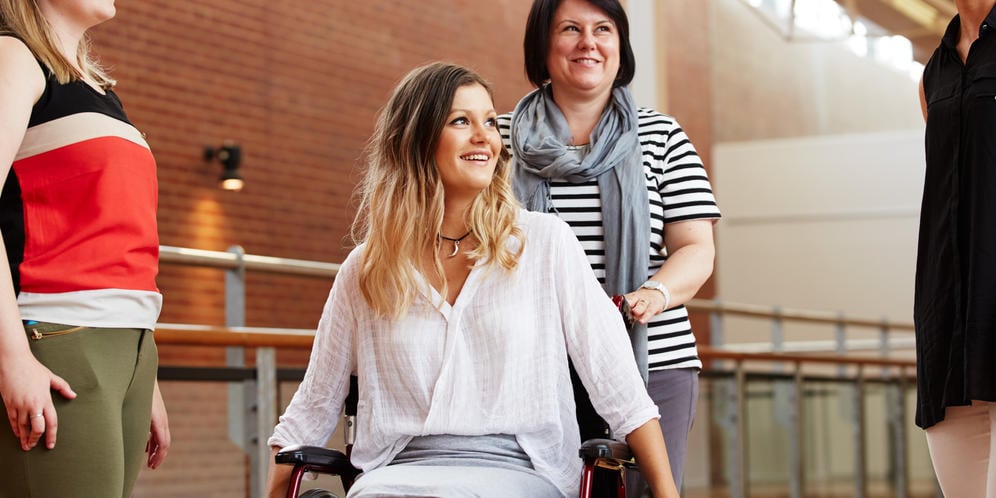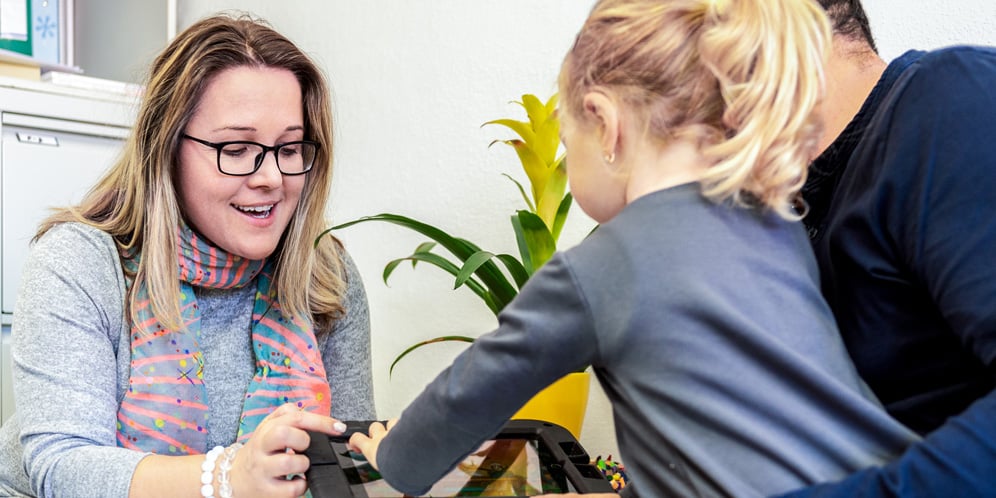There’s still time! Applications for Trimester 2 close midnight Sunday 29 June. ++
There’s still time! Applications for Trimester 2 close midnight Sunday 29 June. ++
Apply nowExplore your study options
Learn relevant, innovative and critical approaches to understanding disability and inclusion, thanks to the up-to-date and practical material in our courses.
Undergraduate
Undergraduate (your first degree)
A Deakin undergraduate course is the foundation of your future career, usually completed in two to four years. Duration varies based on degree type, enrolment pattern and any credit received from recognition of prior learning.
Postgraduate
Postgraduate (further study)
A postgraduate qualification can be undertaken by students who have already completed an undergraduate degree or possess significant, demonstrable work experience. Postgraduate courses include graduate certificates, graduate diplomas, masters and PhDs, as well as specialist programs for industry professionals.
Research
Higher Degrees by Research (supervised research)
Research degrees are research based master’s or PhD programs that focus on a single area of expertise. They provide students the opportunity to carry out highly specialised research under expert supervision.
Choose a degree that will get you work ready
Our disability and inclusion courses will provide you with relevant skills and knowledge. Plus, they’re built to respond to changes in government funding and care, such as the National Disability Insurance Scheme.
Real-world experience
Graduate ready for work with extensive placement opportunities built into your course. While you study, you’ll cover areas like government policy, human rights and advocacy and inclusive services.
Learn from leading experts
Deakin’s academics are globally recognised experts in disability and inclusion research, teaching and learning. That’s what makes us Victoria's #1 university for course satisfaction.
Work in a rural community
Many of our courses have a rural and regional focus that helps to address the significant health workforce shortage in these communities.
Take the next step to a brighter future
Explore our disability and inclusion courses and find out more about life at Deakin. Get more inspiration for your future career in a major growth sector.
Download our study area guide
Study at Deakin and be rewarded with new skills that will give you an edge in the job market
How to choose the right course for you
If you're interested in furthering your career in disability and inclusion, Deakin can help you get there. Increase your job prospects by being better informed about positive options and techniques to assist and support people with disabilities.
Are you new to this area of study?
If you're new to this discipline area, you can begin your journey at the undergraduate level. Browse our undergraduate courses in disability and inclusion, or across health sciences and community health:
- Occupational therapy
- Health sciences (offers a major or minor in disability and inclusion)
- Public health
- Health promotion
Are you working or studying in this area?
If you've completed an undergraduate course in any area, Deakin's postgraduate options in disability and inclusion will help you reach your career goals, especially if you have work experience in the sector.
Top professional roles in disability and inclusion
With ageing populations and public health issues like obesity, heart disease and chronic illness on the rise, governments in Australia and around the world are placing increasing emphasis on the health sector. Jobs in the field are expected to grow significantly by 2034.^
- 585,000 new jobs in health care and social assistance^
- 107,400 new jobs for aged and disability carers^
- 13,600 new jobs for health and welfare services managers^
- 34.7% more jobs for speech pathologists.#
Graduate with an employment advantage
The Australian health care and social assistance sector is one of the largest and fastest growing, with employment projected to grow by over half a million jobs by 2033.^ Study disability and inclusion at Deakin to graduate highly skilled and work ready.
I envisage a world where inclusion isn't dependent on whether someone has a disability. Our students graduate with the tools, passion and skills to create change.
Jo Watson
Senior Lecturer, School of Health and Social Development
World-class teaching experiences
With an emphasis on teaching excellence, practical training and innovative course design, our disability and inclusion degrees will equip you with the skills to build your career.
Learn from experienced academics
Our teaching staff bring a wealth of practical expertise to the classroom, sharing real-world case studies to enable your learning. This ensures you receive hands-on training grounded in real-world practice.
Support diverse clients
Our programs place a strong emphasis on diversity and cultural safety, ensuring you're well-equipped to provide culturally responsive services to clients from all backgrounds.
Study flexibly online
Deakin offers flexible online study options. Our online courses are recognised by industry, recommended by your peers and will make you a highly sought-after graduate. Learn at your own pace, without compromising on quality or support.
Learn Auslan
Gain an introduction to Australian sign language and open new opportunities for your career. Depending on your course, our Auslan units can be studied as a standalone single unit, an elective, or as part of your major or minor.
Want to explore more?
If you're dreaming of an exciting and rewarding career in disability and inclusion, we'll help get you there.
- Breaking barriers: meet five professionals redefining disability and inclusion
- Which health degree is right for you?
- How placement sets you up for a successful health sciences career
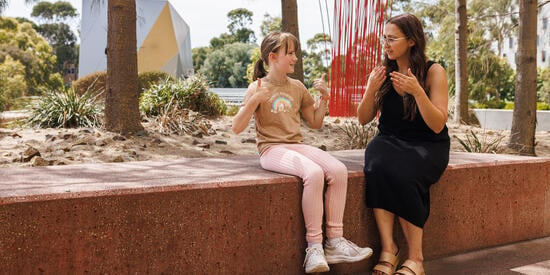
Breaking barriers: meet five professionals redefining disability and inclusion
Do you have a passion for helping others? Discover the rewarding careers available through studying disability and inclusion at Deakin.
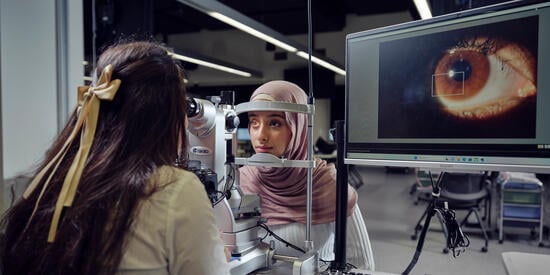
Which health degree is right for you?
Want to study health but don’t know where to start? There are many options to consider when it comes to choosing which health degree is right for you.
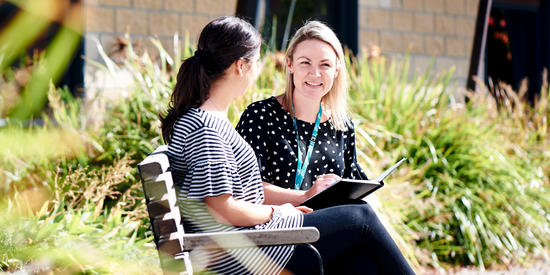
How placement sets you up for a successful health sciences career
Discover how completing a placement as part of your health sciences degree will prepare you with the real-world skills for a successful career.
Rankings and footnotes
Deakin references data from a range of government, higher education and reputable media sources. For more information, visit our University rankings page.
*ABS Disability, Ageing and Carers, Australia: Summary of Findings, 2022.
^Jobs and Skills Australia, Employment Projections 2023–2033.
#Seek, August 2024
++Some courses have limited places, apply early to avoid missing out.
Contact us
Got a question about our disability and inclusion courses? Our course advisers are available to speak to you about your study options and how we can help you further your career.
Domestic students
1800 693 888
Enquire online
International students
+61 3 9918 9188
Enquire online

